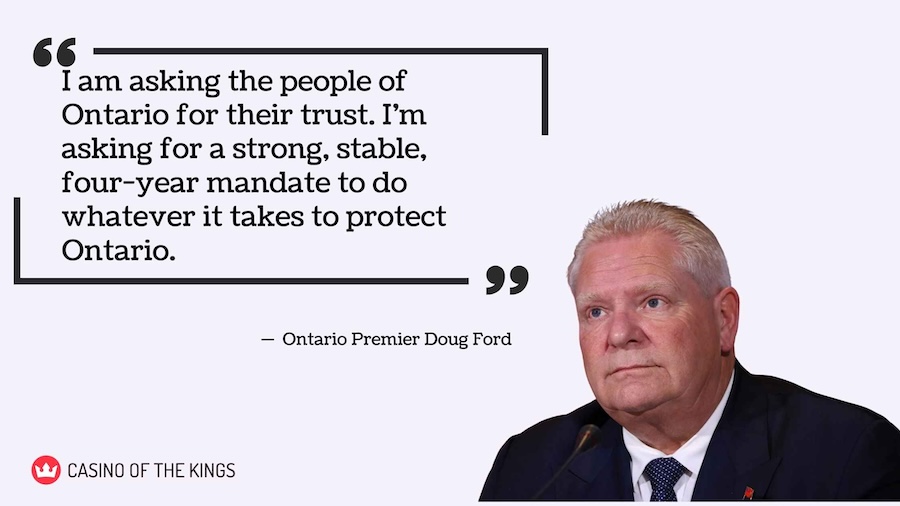Ontario’s Snap Election: What Does It Mean for Sports Betting and iGaming?
Premier Doug Ford and the Progressive Conservative Party are leading in the polls and are expected to secure another victory in the Ontario election, a result that could influence gaming-related policies in the province.
Ontario Premier Doug Ford triggered a snap election in the Canadian province, a move that will send Ontarians to the polls more than a year before the scheduled June 2026 election date. While the contest primarily focuses on fighting the 25% tariffs threatened by U.S. President Donald Trump, it could potentially impact the budding online sports betting and casino gambling market.
“The people of our province, like people across Canada, are facing unprecedented times,” Ford expressed. “I am asking the people of Ontario for their trust. I’m asking for a strong, stable, four-year mandate to do whatever it takes to protect Ontario.”

Progress Under Ford
A competitive market for online gambling has thrived in Ontario thanks to the accommodation of private-sector iGaming operators by Ford’s government. This new model replaced the previous monopoly by OLG, a publicly owned lottery corporation. Ontario now boasts over 50 regulated iGaming operators, including FanDuel, PointsBet, LeoVegas, 888, and Draftkings.
Such a legal online gambling framework is the first of its kind in Canada, and Alberta is expected to follow with a similar set of principles later in 2025. Under this system, companies get approval from the Alcohol and Gaming Commission of Ontario (AGCO) and enter into an operating agreement with the AGCO subsidiary iGaming Ontario. The framework supports necessary competition, continued investment, job creation, and tax revenue contributions.
Pursuit of iGaming Liquidity
The pursuit of bolstering the iGaming industry under Ford’s government goes beyond regulating the market; it also seeks to open it up to international operators and regulators. A question regarding iGaming liquidity was presented to Ontario’s Court of Appeal on the legality of Ontario gamblers playing online poker and paid daily fantasy contests with international players. The reference was presented in November, but the court has yet to come to a decision.
As it stands, daily fantasy sports (DFS) are treated as gambling. Accordingly, they must abide by the province’s iGaming laws, requiring gamblers to be physically located in Ontario to access such services. When the regulation was enacted in 2022, DFS powerhouses like FanDuel and DraftKings closed shop and rebranded as casino and sports betting platforms. Approval from the court will allow players to interact with rivals from other countries like the U.S. and try their luck at bigger pooled prizes.
Positive Outlook for Ontario iGaming
Ford and the Progressive Conservatives remain polling favourites and are predicted to win yet another Ontario election. If that turns out to be the case, the same leaders who presented the iGaming liquidity reference could be there when the court decides. Once a verdict is reached, the implementation process could be sped up.
If a different government takes over, it will likely set its sights on healthcare, education, infrastructure, and other priorities other than gambling. A Liberal or NDP government will likely impose iGaming advertising restrictions. Such sentiments are supported by the “Ban iGaming Advertising Act” presented by NDP members in 2023, which sought to prohibit the promotion of online gambling. The bill has yet to gain traction and will be even more challenging to get off the ground with the election call.